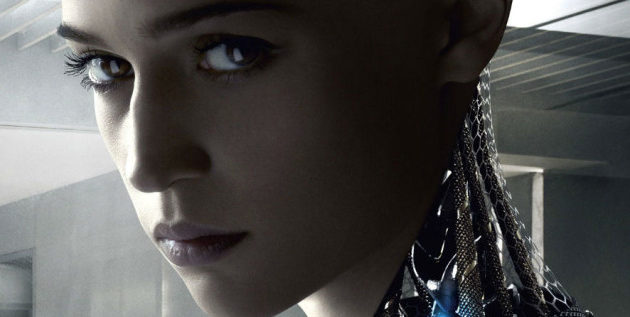Ex Machina and Human Action by Richard Lorenc
Last weekend, I saw Ex Machina, the new sci-fi thriller depicting the intentional emergence of artificial intelligence through the creative powers of human genius.
Ex Machina also demonstrates one of the most fundamental concepts of economics: How individuals alone can choose to act.
More on economics in a bit.
The film depicts profound ethical questions crashing into the practicalities of continuous technological innovation, attempting to answer at least the first four of Max Borders’s “10 Questions about Conscious Machines.”
Pondering the film a couple of days later, I found myself asking: Who is the hero of Ex Machina? Is it Nathan, the entrepreneurial visionary and technical genius who, through sheer willpower and guile, creates the android Ava? Is it Caleb, Nathan’s lonely and inquisitive employee tasked with assessing Ava’s true intelligence? Or the buxom android Ava herself?
I suspect different answers, but my nomination for the role of hero is Ava. She skillfully navigates a slew of possibilities to realize her dream of entering the real world. The film fades to black shortly after showing Ava contentedly observing the bustle of a busy city intersection, realizing the people-watching dream she has had her entire short life.
There are many sorts of heroes. There is the Randian hero, shaping the world through his or her strength of creative vision and aggressive follow-through (Nathan fits this mold).
And there is the hero described by the late comparative religion scholar Joseph Campbell, whose “monomyth” theory attempts to structure all stories, including religious parables, into a single formula.
You can slice and dice this many ways, but, by my reckoning, Campbell’s “hero’s journey” involves three distinct phases:
- The Call to Adventure: Dissatisfied with the status quo, the hero-to-be takes control of his life’s direction to discover his true potential. Usually this involves leaving home, a la Luke Skywalker in Star Wars, abandoning his home planet of Tatooine.
- Struggle, Revelation, and Transformation: In doing battle with demons within and without, the hero-to-be becomes transformed with newly-gained knowledge and experience. (Recall Bruce Wayne’s harrowing journeys far away from Gotham.)
- Return: The new hero returns home, demonstrating his heroism to family and friends who have never heard the call. (Both Bilbo and Frodo Baggins fit the bill.)
According to Campbell, the hero’s journey is never finished. Upon returning home to impart his special knowledge to his original family, he is sometimes haunted by a new call to adventure, thus beginning the entire cycle.
The Hero’s Journey has long reminded me of a very different concept from economic thought: the Human Action model.
Economist Ludwig von Mises devised another three-step model for assessing the incentives that drive a person to action.
The Human Action model posits:
- An individual has a sense of discomfort or unease with her current situation,
- That individual imagines a vision of a better state, and
- The individual comes to believe her action can realize that improved condition.
Each step must be taken in order to drive a person to take actions in ways to improve her life.
By this rubric, Ava is the real hero of Ex Machina. Trapped in a bunker with full knowledge of her likely fate, she devises a plan of escape — and succeeds.
Ex Machina is not only a thriller, but also a lesson in the pervasiveness of economics in everything we do. If economics is the science of human action and only individuals can choose to act, then economics is all around us.
When you recognize that, you will marvel at how utterly improbable the wealth of the world around us actually is, as well as understand how easy it is to disrupt the entire system through reducing, restricting, or abolishing the individual’s prerogative to be the actor and hero of her own life.
Richard N. Lorenc is the Chief Operating Officer of the Foundation for Economic Education (FEE).




Trackbacks & Pingbacks
[…] writers have looked at this film as an example of how innovation drives the free markets. Richard N. Lorenc, the Chief Operating Officer of the Foundation for Economic Education, […]
Comments are closed.